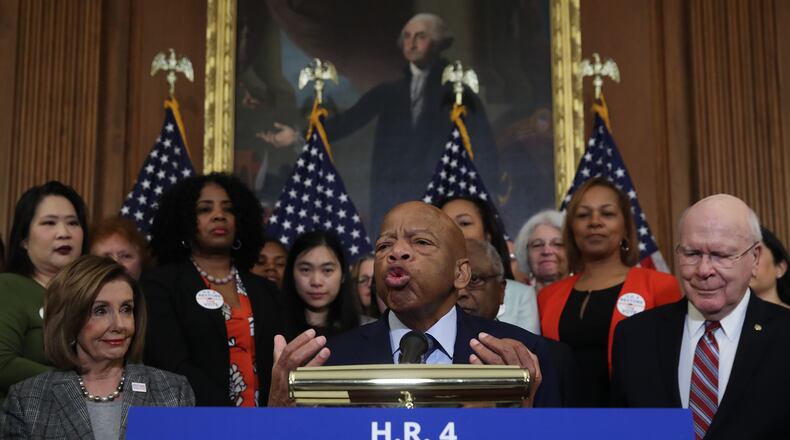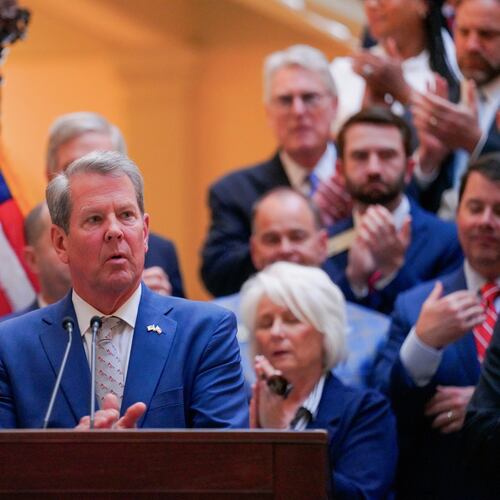U.S. Rep. John Lewis, who once marched in the name of civil rights, stood at the speaker’s chair and gaveled in a vote to renew portions of the Voting Rights Act.
The House passed the legislation on Friday by a mostly party-line vote. Only one Republican joined with Democrats in supporting the Voting Rights Advancement Act, which would renew voter protections that were scrapped after a 2013 U.S. Supreme Court ruling.
Prior to the vote, U.S. Rep. Lucy McBath spoke in favor of the bill. She said she watched her father pursue protections for minority voters as the head of the Illinois Branch of the NAACP.
“When it comes to voting rights, my father’s work is still unfinished,” McBath, a Democrat who lives in Marietta, said. “And today, I am so proud we are taking an important step toward completing that work.”
McBath said she was a child in a stroller during the 1963 March on Washington. Lewis, an Atlanta Democrat, was one of the speakers that day and is a cosponsor of the legislation approved on Friday.
The Voting Rights Advancement Act would create a new formula for the U.S. Department of Justice to use to determine which states with histories of voting discrimination would be required to pre-clear proposed election changes. If it becomes law, the Justice Department would again have the power to strike down proposed voting changes in Georgia.
Stacey Abrams, the former candidate for governor in Georgia, spoke in favor of the bill during a committee hearing in June.
The legislation now goes to the Senate where approval is unlikely in a Republican-led chamber.
U.S. Rep. Doug Collins, a Gainesville Republican, said he opposed the measure because other portions of the Voting Rights Act that were not struck down by the courts allow for sufficient protections still. He also said the changes in the new measure would put too many restrictions on states wanting to update elections laws.
“This bill would essentially, federalize state and local election laws when there is absolutely no evidence whatsoever that those states or localities engaged in any discriminatory behavior when it comes to voting,” Collins said.
However, with so many Democrats wanting to speak in favor of the bill, Collins allowed U.S. Rep. Jim Clyburn of South Carolina to use some of the Republicans’ debate time.
Read more | Abrams urges Congress to update federal voting rights protections
Also | Supreme Court scraps Voting Rights Act pre-clearance formula
About the Author
Keep Reading
The Latest
Featured



